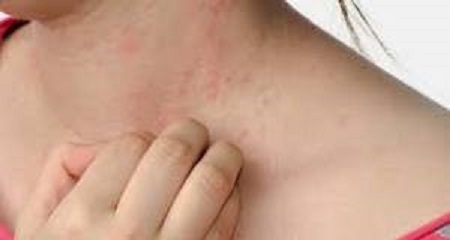A month or two after HIV has entered their body, 40-90% of the people experience symptoms that resemble flu symptoms, and this is known as acute retroviral syndrome (ARS).
But, in some cases the HIV symptoms don’t appear for years, even decades after the body has been infected.
These are some of the signs that may indicate you are HIV-positive.16 Signs You May Have HIV
Fever
One of the first signs of ARS might be a mild fever, up to about 102 degrees F.
In case you experience the fever, you may also often experience other generally mellow side-effects, such as sore throat, swelling of the lymph organs, weakness etc.
Fatigue
One of the inflammatory responses of your overwhelmed immune system is the feeling of tiredness and lethargy. Fatigue can be an early sign of HIV, but a later one as well.
Throbbing muscles, joint torment, swollen lymph hubs
Lymph hubs are part of the body’s insusceptible framework and are usually kindled in case of a disease. The most part of them is placed in the armpit, the neck and the crotch.
ARS is often confused for the seasonal cold virus, mononucleosis or another viral infectivity, even hepatitis or syphilis.
Sore throat and headache
According to Dr. Horberg, sore throat and headache are frequently recognized as ARS only in context.
One should be aware that the body still hasn’t produced antibodies to HIV, so an antibody test may not pick it up (the antibodies of HIV can be seen in a blood test from a few weeks to few months). One should find some other test options, like the one that detects viral RNA, usually within 9 days of the infections.
Skin rash
Skin rashes can be both early and late HIV/AIDS signs.
Nausea, vomiting, diarrhea
Around 30% to 60% of the people in the early stages of HIV deal with short-term nausea, vomiting or diarrhea, Dr.Malvestutto says.
Weight reduction
Called “guides squandering”, weight reduction is a sign of more propelled illness and can vary between a minor weight reduction to extreme looseness of the bowels.
Dry cough
Ron first noticed that something was wrong with him because of the dry cough. But, he thought it was some kind of allergy. According to Dr.Malvestutto, this cough is typical for patients of HIV who are very ill and could be going on for weeks, with you not seeing the way in which it would be resolved.
Pneumoniaq-640×634
Weight reduction and the hack might be a forecast of a genuine disease caused by a germ that wouldn’t cause any troubles if the invulnerable framework was working properly. Other opening diseases include toxoplasmosis, a parasitic contamination that affects the mind; a kind of herpes infection known as cytomegalovirus and yeast contaminations, like thrush for example.
Night sweats
Around 50% of people get night sweats in the early stages of HIV infection, Dr. Malvestutto explains. In the later stages, they become even more common and aren’t related to exercise or the room temperature.
Nail changes
Another sign of HIV contamination are nail changes, such as clubbing (bending and thickening of the nails), staining (dark lines or chestnut lines, placed vertically or on a level plane).
This is mostly the case because of some infectious disease, like Candida for example. According to Dr.Malvestutto, patients with worn out insusceptible frameworks are feebler to contagious contaminations.
Yeast infections
A fungal infection common in the later stages is thrush, mouth infection that is a result of Candida, which is a kind of yeast.
According to Dr.Malvestutto, it is one of the commonest funguses that cause yeast infection in women. Most frequently, they appear in the mouth, or the esophagus, and cause difficulties when swallowing.
Perplexity or trouble concentrating
Another sign of HIV-related dementia can be subjective issues, which appear mostly in the later stages of the disease. Perplexity and trouble concentrating aside, the AIDS-related dementia may also include problems with the memory and the behavior, like bitterness or irritability.
Cold sores or genital herpes
Oral herpes (cold sores) and genital herpes are an indication of both ARS and HIV in the late stages. Having herpes can also represent a risk factor for contracting HIV, since genital herpes may cause ulcer and thus make it easier for the HIV to enter the body during s3x. Also, people who have HIV usually have more severe herpes outbreaks more frequently because their immune system is weaker.
Shivering and shortcoming
Deadness and shivering in the feet and hands are also a sigh of HIV, in its later stages. The symptom is called fringe neuropathy, and it can also happen to people with uncontrolled diabetes.
Dr.Malvestutto explains that at this point the nerves are quite harmed. This can be treated with the help of over-the-counter distress relievers and anti-seizure medications, like Neurontin (gabapentin) is.
Menstrual irregularities
HIV disease in its late stages increases the risk of menstrual irregularities, like fewer and lighter periods.
There’s a link between the HIV infection and the earlier menopause (47 to 48 years for infected women and 49 to 51 years for uninfected women).
Don’t Forget To Share With Your Friends And Family On Facebook, As You Might Help Someone In Need!


Leave a Reply